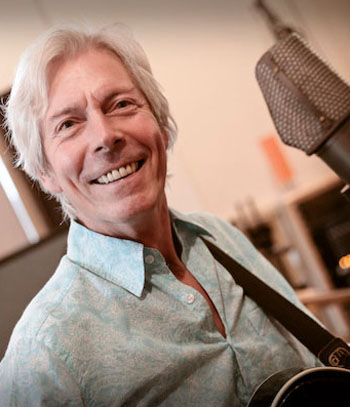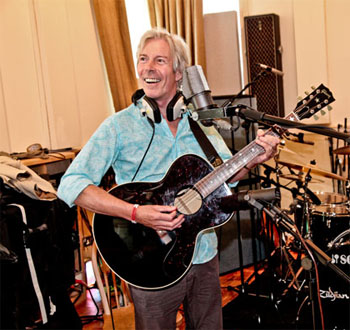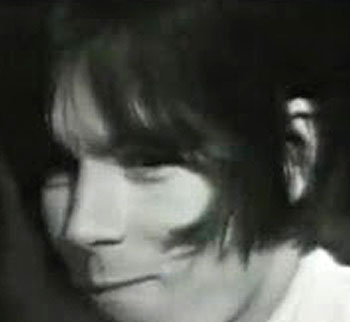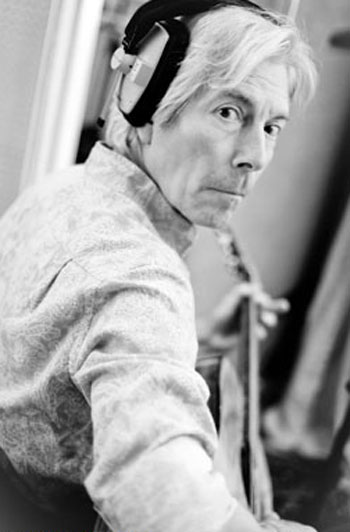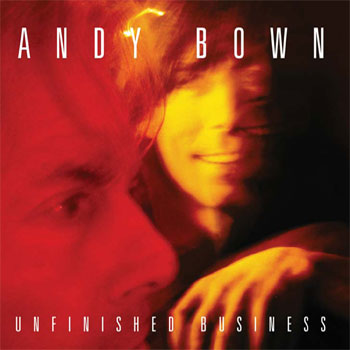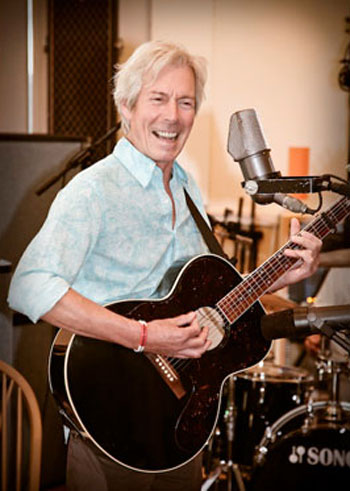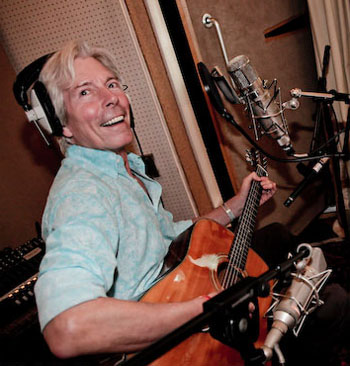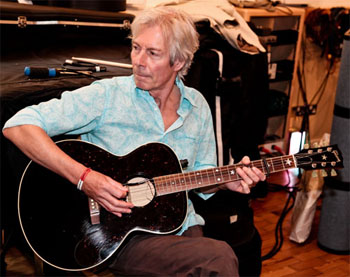
|
||
|
| Interview: ANDY BOWN |
With a career boasting over 37 years with Status Quo, a 5 year stretch with The Herd, high profile stints with Judas Jump, Peter Frampton and Roger Waters, and countless sessions ranging from Dusty Springfield and Tim Hardin to Pink Floyd and Paul McCartney, keyboard player, bass player and guitarist Andy Bown has never really stopped working since the mid 60's. But parallel to his illustrious bio lies a dormant solo career which boast 6 albums and a handful of singles, that includes 'Tarot' the theme to the TV Series 'Ace of Wands' and 'Supersonic' the theme tune to Mike Mansfield's mid 70's TV pop show. Surprising then that having stuck with the rigours of touring and recording with Status Quo, Andy once again turns to his solo career for the aptly titled 'Unfinished Business', on Cherry Red Records, his first album in 30 years. Pete Feenstra talks to Andy about his solo career, the new album and his relationship with the mothership Quo...
First question, lets clear up a long debated question, did
you play bass on Tim Hardin's album 'Nine'? It was very much Martha Reeves 'Dancing in the Street' and 'She Was Really Saying Something', though I can't remember who did that originally (The Velvelettes). But it was all a bit like what The Who were doing at the time, only not as loud, more like The Action really.
So what happened after The Herd? Our manager at the time Don Arden pulled some kind of deal with a Warner holiday camp in Bembridge on the Isle of Wight, so we could 'get our thing together man'.
It
was a huge place and the problem for me was I was the only one
who could cook and the kitchen was the size of Barnes. I
remember using huge frying pans that seemed to be up to 4 feet
wide across. We didn't work much! But yes, working with Status Quo is relentless as we start in February and work all the way until Christmas, year in, year out. So yeah that makes it tough to fit anything else in. But once I decided to do this album, or rather once I was talked into it by Mike Paxman the producer, and especially my wife Veronica I was committed to it. It was her who said, 'just get off your ass and do it', I realised I'd accumulated quite a bit of stuff, a mix of ideas and part songs. And by the time I'd realised I'd got the hang of it all, I vomited 7 songs (laughs) and their faith in me wasn't misplaced.
This is your first solo album for 30 years. Given that you've
got Quo's producer Mike Paxman working on it, did you have to
consciously think about doing something different from Quo?
Quo's music isn't so much a formatted thing as our own sound and
racket. You know, it is simply the case that what we do is
Status Quo! I mean we're not very Proggy but it's what people
want to hear and it's what we do best. What is difficult for us
is keeping the same sound but with a slight difference,
maybe with a new twist on it. I know more about me than anything else so it's a good subject matter. And it's an extension of the fact that this is the first album I've done where I haven't had to worry about what other people say or expect.
What is the big difference between this record and the others
then? I just liked the line, 'Maggie Smith, Beachy Head, Call My Bluff, Golden Shred', on 'Tick My Box'. The words just came to me and they worked. There were really no parameters on this album for me. I just did it for myself. My big mistake in the past was trying to do too much. Everything ended up being too diverse. It was all about look how clever I am, from songs with one chord to a full orchestral arrangement. This album is me calmed down and I've really enjoyed it. There are still some different things in there but I think all the tracks sound like they are by the same bloke.
You open with 'Ruby and Roy', a story about Roy Wood and also
there's a song about Live Aid called 'When The Lights Went On';
do you often reference people you've met in your songs?
I
think he's just had this prescription stuff and anyway he got a
gig and borrowed my acoustic. It wasn't a particularly great
guitar, but about an hour later I saw him through the window of
an off sales room in a pub with a big bottle of vodka. He didn't
have any money back then, so I put two and two together and
years later it ended up in a song. Looking back I wonder if I was really there, as I can't imagine how I sang that high at the time. It must have been the testosterone (laughs).
'A Matter Of Time' is country tinged ballad and a real
departure. Did you consciously approach your vocal phrasing in a
different way on that song? The amazing strangulated but heavenly chorus is actually Mick Rogers guitar sound before the singer loses the plot (laughs). He's a poisoned character, not a happy bunny and I the imagination of the listener/reader or whatever is probably going to top himself. Mike did a lot of work on it too, especially on the bit when it goes mad. So when it came to the part he put his 'now it goes mad' hat on and nailed it.
The album finishes with 'Good Innings' a heartfelt reflective
song which seems to work on an emotive level as well as
providing a poignant finish to the album? It's a song about the unplugged void and it emphasises the idea of living with a broken heart for the rest of your days.
It
was inspired by a lot of things in my life, some people I know
and really respect and an old couple I know in particular. It
really makes me sad, and I broke up when I tried to record it.
Mick is a typical musician who would play something, then I'd say, play it again, and he would go, play what? That's where pro tools came in (laughs). Now when you put him in with Henry it's a joy because Henry is the kind of drummer who can play a song immediately. In fact I don't ever recall telling Henry anything about how he should play, even though I wrote the song! By the end of the song he was playing it.
And all that contributes to making it sound live as you said.
Henry is exceptional. Often drummers just don't get the song, so
many drummers and so little time! (laughs).
No
I think Francis had already done his. But there wasn't any
discussion or mention of either album. It just doesn't happen.
In fact we don't talk much as a band anyway. I did ask him for a
copy of his album, but I don't know if he asked for mine.
It
wasn't so much a case of developing as a songwriting team as
taking things an album at a time. I think there was less
pressure in the early days when someone would say 'I've got an
idea'. Everyone is much more guarded now, people tend to write
bits by themselves, whereas we used to sit round a table in a
hotel, smoke some dope and come up with some ideas.
'Unfinished Business' is released on 5 September via Cherry Red Records
Interview © September
2011 Pete Feenstra
Photos: Christie Goodwin |
|
get ready to rock is a division of hotdigitsnewmedia group

